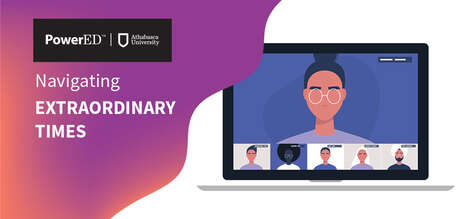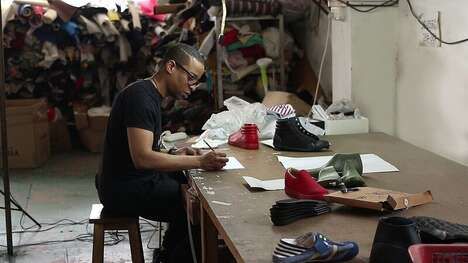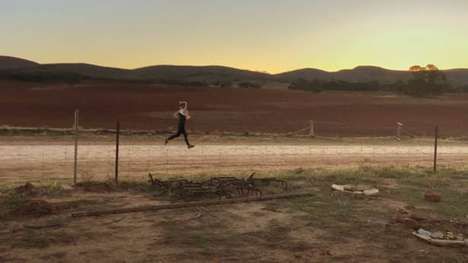Adapting to Digital
An Interview with Lauralee Sheehan, Founder and CCO of Digital55
 The COVID-19 pandemic, as well as the restrictions that have been imposed by governments to contain the outbreak, have dealt much disruption into almost all spheres of life—from how we socialize and how we are entertained to how we search for jobs and how we travel. As much of these changes are anticipated to stay, many are looking for solutions in technology and the digital space.
The COVID-19 pandemic, as well as the restrictions that have been imposed by governments to contain the outbreak, have dealt much disruption into almost all spheres of life—from how we socialize and how we are entertained to how we search for jobs and how we travel. As much of these changes are anticipated to stay, many are looking for solutions in technology and the digital space. Digital 55 is a collective of award-winning specialists in the department of design, web development, research, and production that collaborate on creating "unique, innovative digital interactive products and learning experiences." Geared toward assisting clients in government agencies, not-for-profits, and companies, Digital 55 curates unforgettable events that combine user experience, content architecture, and interactive storytelling with interdisciplinary arts—music, film, design, and so on. Most recently, the company developed Navigating Extraordinary Times—a free micro-course in collaboration with PowerEd by Athabasca University that teaches leaders how to navigate our new COVID-shaped reality.
In order to get a glimpse of the future of education, work, and social life, Trend Hunter spoke to Digital 55's Founder and CCO, Lauralee Sheehan.
How has COVID disrupted your business model at Digital 55 and what opportunities has it simultaneously created?
Before COVID-19, we were going through a scale and growth phase and things were accelerating very quickly. Since COVID, that acceleration is happening even faster so it’s been quite strange and surreal. We work with content and create modular digital experiences, and right now everyone is trying to digitize everything—not only for the present moment but also for the future. We feel fortunate that we are agile and can work remotely for long stretches of time if needed, so there has been little disruption to the work we do. Digital 55 has proved to be chaos-proof. In fact, we are scaling again to speak to the emerging need all industries are facing in terms of disseminating knowledge very rapidly and getting important content online. In the long term, there is going to be a 'future of work' shift for all industries and companies with a huge focus on the knowledge economy and we expect to be highly involved, especially on the learning and cultural thinking side.
Can you tell us a little bit more about your most recent digital experience—Navigating Extraordinary Times?
Yes! Navigating Extraordinary Times is a free digital learning release that we created with PowerED by Athabasca University. It provides leaders with frameworks and tools to navigate the global pandemic. In the course, we talk a lot about empathy, vulnerability, and resilience because leaders should regard these things as critical in today’s workplaces, and we want to help them build frameworks to support these practices. The goal is to foster inclusive and safe spaces for people to work. Through our interactions and activities, we wanted to encourage leaders to focus on the things they can control or influence, and uncover the unexpected opportunities that will help sustain their organizations, teams, and communities into the future so we’re very proud of this project! We really leaned into the “just in time” learning model, rapidly building this course and making sure it was fluid, adaptable, and digestible.
How are consumers responding to this resource?
The response has been amazing and heartwarming! Times are crazy for so many people and the important thing about this resource is not only the immediate takeaways for business sustainability but the level of connection and empathy we were able to speak to. Business culture is shifting rapidly. Leaders are taking a more humanist approach across the board by fostering inclusive collaboration and safe spaces to work. New business practices and purpose-driven leadership are providing a foundation on which we can rebuild business culture from the ground up and say goodbye to things that weren’t working or didn’t make sense. I would like to share with you a couple of direct quotes from learners:
“It was like a warm hug going through it and I felt my stress level decrease as I went further into the sections on empathy, vulnerability, and resiliency. It was great to immerse myself in the idea that these are essential “business” skills that are truly valued now, not taken for granted or seen as a weakness in this context.”
“The course was refreshingly optimistic and inspiring. There were many ah-ha moments for me - but the one that stands out most is recognizing that not everyone uses the same coping mechanisms during these extraordinary times. As a teammate and leader, we need to be mindful of what others may be going through and practice empathy with each other.”
What do you think is the biggest challenge of online learning and how do you think we can overcome it?
The biggest challenge is that people aren’t ready to quickly transition their content to digital-only, especially when the learning experience has to be continuous (longer courses for example). Under such chaos, it’s a real challenge for everyone. It’s not just a case of “Well, now everything’s online.” It takes architecture, design, and deployment strategies to flip to digital. You have to do some systems thinking to make sure the pivot to hybrid or blended learning is sustainable.
There is also the consideration of attention and engagement in the digital space. There is a lot of “noise” online and the fight for attention is a real thing as people are digesting so much digital content. It’s important for digital learning to have the appropriate integrations and well-designed experience. We believe that these days, when it comes to online, everything is a learning experience and one trend we see becoming more mainstream in education is “stacking” assets.
When we talk about “stacking” in digital we mean looking at all the modalities, all the integrations, and all the assets or touchpoints that create a modular and complex learning experience. It’s never just one platform or one modality that will create a modern digital learning experience, and starting to use other digital assets in a more curated and structured way is key (Why not have a Spotify podcast as part of your curriculum? If the learner is going to watch that YouTube vid anyway, why not be the one to curate it as an educator or course designer?) so these are the things we’re always thinking about.
Do you think the learning environment will fundamentally and permanently change post-pandemic? How?
Inevitably yes, the learning environment will fundamentally change. I think blended learning and digital integrations will be much more situated within all learning experiences and some of the old structures will be replaced with new learning models so that learning can be more agile and fluid. Ryerson Leadership Lab speaks about revolutionizing education and I think this is true. It’s less about mastery and more about creating pathways of connection and curiosity. Learning will become much more exploratory and asynchronous. Fluid and flexible experience design is a key component of this.
I also think project-based learning or real-world learning will become more important as well. This has always been a great way to learn but with the need to think about new ways of learning, this will be a big thing. Digital tech has changed our relationship to information and knowledge gathering. The old processes and ways that people learned were not always working. Thinking of the future, curating integrations, and looking at designing content will be more important than just straight-up content dissemination when it comes to new learning environments.
How do you ensure diversity and inclusion within the digital environment?
Every designer and every leader who’s collaborating with a digital team must commit to designing for all people. This includes delivering on accessibility best practices, but it’s also reflected in using visual elements that depict individuals with enough specificity to convey a range of diverse backgrounds while remaining graphic enough to resonate with all learners.
I feel like sometimes “inclusive” or “intersectional” are words that get thrown around, but especially now when we are seeing social disparities in the world, it is important to walk the talk by taking action-oriented steps.
It’s less about the ‘rules’ and more about having empathy. It’s less about instructing, more about facilitating. It’s less a to b thinking and more space for different perspectives to have a voice. Access to knowledge varies, especially in the digital space, and you can’t always understand the ways people will interact with whatever you’re designing. The best way to address that is by building a diverse team and fostering research and co-creation as part of your process. This allows you to build diverse modalities into the project, and provide complex storytelling which speaks to different learning styles and creates the right environment for different types of engagement.
References: digital55studios, powered.athabascau
Featured Articles

Podcasting Through the Pandemic
An Interview with Marshall Lewy, Wondery’s Chief Content Officer

Helping Vulnerable Youth in the Pandemic
misterb&b's CEO Tells us How His Company Aids LGBTQ+

Working Out & Meal Prep at Home
An Interview with Fitness Empire Founder Heather Wilson-Phillips

Boundary-Pushing Party Activations
A Chat with Diederik Vos, Global Brand Director for Desperados

Adapting to Renewed Expectations
CEO and Author Joe Jackman Speaks to the Food and Beverage Sector

Facilitating Systemic Change in Design
George Sully Speaks to the Launch of the BDoC Index

Coping with Increased Food Insecurity
An Interview with Daily Bread Food Bank's Neil Hetherington

Building a Comprehensive Community Support Program
An Interview with TD's Andrea Barrack

Empowering Runners During a Pandemic
ASICS' Fiona Berwick Speaks to the #RunToFeel Initiative